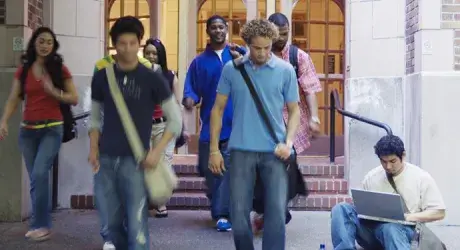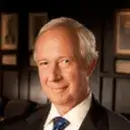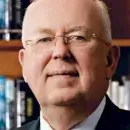Commission on the Humanities and Social Sciences

The Commission on the Humanities and Social Sciences claimed a space in the national dialogue for the humanities and the social sciences and recommended specific steps that government, schools and universities, cultural institutions, businesses, and philanthropies could take to support and strengthen these areas of knowledge.
The Heart of the Matter
Answering a bipartisan call from U.S. Senators Lamar Alexander (R-Tennessee) and Mark Warner (D-Virginia) and Representatives Tom Petri (R-Wisconsin) and David Price (D-North Carolina), the Academy created a national Commission on the Humanities and Social Sciences in 2011. The goal of the Commission was to claim a space in the national dialogue for the humanities and the social sciences and to recommend specific steps that government, schools and universities, cultural institutions, businesses, and philanthropies can take to support and strengthen these areas of knowledge.
The Commission considered and responded to the following question:
What are the top actions that Congress, state governments, universities, foundations, educators, individual benefactors, and others should take now to maintain national excellence in Humanities and social scientific scholarship and education, and to achieve long-term national goals for our intellectual and economic well-being; for a stronger, more vibrant civil society; and for the success of cultural diplomacy in the twenty-first century?
Drawing on past Academy research efforts, data from its Humanities Indicators, and the experience and expertise of a multidisciplinary group of national leaders, the Commission prepared a report and recommended concrete, actionable steps to ensure the nation’s excellence in the humanities and the social sciences.
The report lays out three main goals and thirteen recommendations for advancing the humanities and social sciences in America, focusing on creating an engaged and literate public; funding research and support for educators; and promoting language learning, area studies, and study-abroad programs to strengthen U.S. leadership in an increasingly interconnected world.
People
Richard H. Brodhead
John W. Rowe
Danielle Allen
Kwame Anthony Appiah
Norman R. Augustine
Robert M. Berdahl
Robert J. Birgeneau
Philip N. Bredesen
David B. Brooks
Louise Henry Bryson
Kenneth L. Burns
Tom Campbell
Francisco G. Cigarroa
G. Wayne Clough
James Cuno
Gerald Lyn Early
Karl W. Eikenberry
Drew Gilpin Faust
Roger W. Ferguson
Richard B. Freeman
John J. DeGioia
Annette Gordon-Reed
Anthony Grafton
Amy Gutmann
Emmylou Harris
Robert M. Hauser
John L. Hennessy
Jill A. Hornor
Kathleen Hall Jamieson
John I. Jenkins
Steven Knapp
John A. Lithgow
George W. Lucas
Yo-Yo Ma
Carolyn A. Martin
Anthony W. Marx
W. James McNerney
Eduardo J. Padrón
Carl H. Pforzheimer
Earl A. Powell
Hunter Ripley Rawlings
John Sexton
Donna Edna Shalala
David J. Skorton
David Souter
Eric J. Sundquist
Billie Tsien
Charles M. Vest
John E. Warnock
Diane P. Wood
Pauline Ruth Yu
Publications
Events
Project Outcomes
The Commission’s report, The Heart of the Matter, became an integral part of an ongoing national dialogue about the state of the humanities and social sciences in the United States.
- The report was featured in nearly 300 newspapers, podcasts, and television programs, including The New York Times, Psychology Today, The Guardian, National Public Radio, PBS, and The Colbert Report.
- A companion film – produced by the Ewers Brothers and featuring Ken Burns, Yo-Yo Ma, John Lithgow, and other members of the Commission – was screened at faculty meetings and university outreach events, and at board meetings of state humanities councils and nonprofit foundations.
- Institutions of higher education adopted parts of The Heart of the Matter for dozens of purposes – for local fundraising, curricular reform, and even community-building. Several colleges made the report required reading for incoming students, and two universities – the University of South Carolina and Carnegie Mellon University – showed the companion film to incoming freshmen.
- The Commission’s activities included nearly fifty events in twenty-three states as well as in England, Switzerland, and Sri Lanka. Through these gatherings, scholars, leaders of academic and nonprofit institutions, and other members of the public exchanged ideas for the practical implementation of the Commission’s goals in local communities. Many of these activities are described in the Commission’s follow-up report, The Heart of the Matter Around the Country.
Learn more about the Commission’s outreach and influence:



